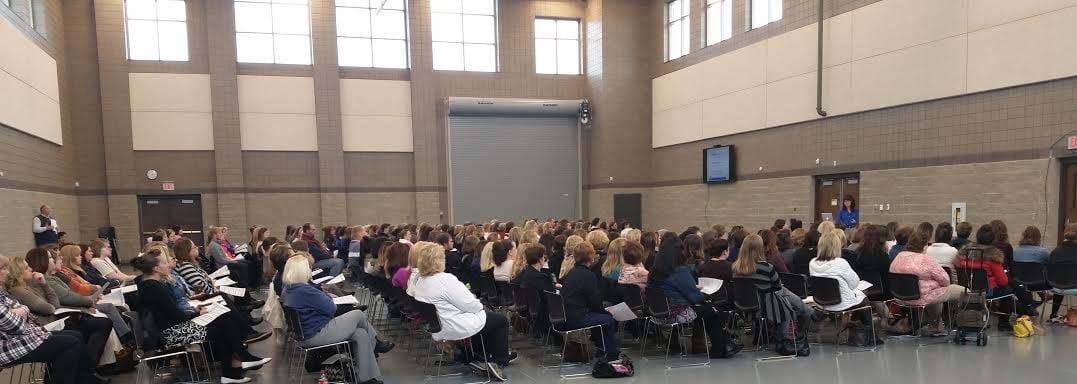Jan 30, 2017 | Native Hope
Human trafficking generates billions of dollars each year in corrupt profits, both globally and in the United States. This exploitation and entrapment of millions of people, mostly women and children, is one of the most barbaric crimes against humanity. At Native Hope, we strongly believe that if we want to see this crime abolished, we must unite together in collaborative efforts to raise awareness and understanding.
A vision of hope
Here at Native Hope, we're partnering with other organizations that are dedicated to preventing sex trafficking within our state. Not only are we making headway in our individual communities—and for us that includes our Native American Indian Reservations—but also we are joining together at the statewide level to engage in the process of legislative change. One of the grant initiatives we've come alongside is the Watertown Initiative to Prevent Sex Trafficking (WIPST), based in Watertown, South Dakota.
This grant initiative is proactively carrying out their mission to prevent human trafficking by raising awareness, providing education, and helping to build healthy communities. Led by grant manager, Sister Teresa Ann, WIPST's foundation for prevention began with HOPE: Local Citizens Against Human Trafficking in 2012, when the Benedictine sisters of Mother of God Monastery led the organizational efforts to form a small group of agencies and individuals who were passionate about seeing this issue exposed and stopped. Then, in July of 2015, they were awarded a violence prevention grant from Catholic Health Initiatives. Jenna Moffatt, outreach specialist for WIPST, explains that the grant is education focused.
Their goal is to reach out to other coalitions and networks, to train professionals in law enforcement, health care, and other industries, to change organizational practices, to influence policies and legislation, and to go into the schools and educate teachers and students, along with the community as a whole. She states, “It’s the idea that real change starts on all levels within the structure of the community, that only through collaboration will we see real change.”
Jenna is passionate about her occupation. “I don’t feel like I’m working. I feel like I’m part of something so important, something that goes beyond a job.” She also adds how much she “resonates with the message of hope that Native Hope is bringing to this otherwise hopeless issue.”
The impact of collaboration
As a result of her experiences, as well as her degree in public health, she stands firm on the power of teamwork. She explains, “In public health issues, you have to have collaboration. I’ve already run into a sort of competitive mindset from other organizations. A kind of ‘this is my territory’ mentality. The victims are the ones who lose out when groups are not utilizing existing partnerships and resources available to them. Overall, however, most have been really amazing, while only a few have wanted to stand on their own." Jenna reiterates, "There’s just so much work to be done! We need to collaborate! One organization can’t do it all!”
Although they are only in their second year, “still getting our feet under us," as Jenna says, the WIPST coalition that has formed as part of the grant is pleased about the progress they are making within the community and the surrounding areas. They are comprised of over 30 local organizations as well as individual volunteers. Jenna is excited to have such a great representation and says, “Getting that community support from the beginning was huge! When we first started going out into the community, we got 'yes' from so many people who were wanting to be involved and lend their support and voice to this important cause. Our goal is to protect our children and make sure this isn’t happening, and a lot of people resonate with that.”
The power of prevention
Unfortunately, human trafficking is “very real here," states Jenna, "especially among the Native community.” She explains that it’s not uncommon for young Native girls to be trafficked in exchange for money or meth, especially at parties held for migrant workers. So, WIPST works closely with the Lake Traverse Reservation and the Dakota Pride Center and strives to bring awareness to agricultural workers as well. In addition, Jenna recently attended educational training in Pierre, SD, and related both the need and the hope to reach out to every reservation in the state.
She believes that there is no better solution to the issue than prevention. Describing her experience visiting a school, she says, “I see these young girls, and they’re so vulnerable and trusting and wanting acceptance.” Thankfully, though, she says, “The school we have worked with thus far has been great and is always open to group trainings and inviting speakers in to raise awareness."

WIPST is also diligent with advertising regularly on the radio as well as on billboards situated along busy travel routes. Additionally, they combine their efforts with other like-minded organizations in South Dakota to bring legislation to the table of the state's representatives. She declares, “Our goal is that anyone who is working to prevent sex trafficking or to provide services for victims has open communication and collaboration to share and utilize resources so that we are one powerful force across the state against sex trafficking.”
All of us at Native Hope believe in breaking the silence for the victims and survivors of human trafficking. By joining together and spreading the message of prevention, education, and hope, we will see real and lasting change. There is so much work to be done, and we are much stronger together than apart. Please join us in this collaborative effort. 100% of your donation helps fund vital programs that prevent sex trafficking, support victims of abuse, and provide education, counseling, and housing for Native American youth.
COMMENTS